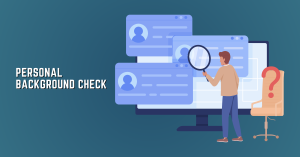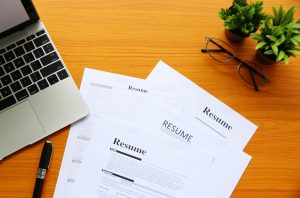Search for the information online
With the wealth of information available on the internet, conducting an online search can be a great starting point to find out someone’s educational background. Here are a few ways you can utilize the power of the web:
- Search engines: Begin by conducting a comprehensive search using popular search engines like Google, Bing, or Yahoo. Enter the person’s name, followed by keywords related to education such as the name of universities, degrees, or educational institutions they may have attended. This can help you gather general information about their educational background.
- Social media profiles: Many people include their educational history on their social media profiles. Check platforms like LinkedIn, Facebook, or Twitter for any public information related to their education. Look for posts, updates, or sections dedicated to educational achievements or institutions they have attended.
- Academic publications: If the person you are researching has published any papers or articles related to their field of study, it can be a valuable source of information about their educational background. Search academic databases or platforms like Google Scholar to find any publications they may have authored or co-authored.
- Online portfolios or resumes: Many professionals maintain online portfolios or resumes that document their educational qualifications and achievements. Websites like Behance, GitHub, or personal websites can provide insights into their educational background, including degrees, certifications, and relevant coursework.
- Online directories: Some educational institutions or professional organizations maintain directories that list alumni or members along with their educational background. Check these directories to see if the person you are researching is listed and if any educational information is available.
Remember to approach online information with caution, as not all sources may be reliable or up-to-date. Cross-referencing the information you find with other sources or reaching out directly to the person or relevant institutions can help verify the accuracy of the data.
Look for public records or official documents
Public records and official documents can be valuable sources of information when trying to find out someone’s educational background. Here are a few avenues to explore:
- School transcripts: If the person you are researching recently attended a school or college, they may have transcripts on file. Contact the educational institution directly and inquire about their procedure to access transcripts. This document can provide comprehensive information regarding the courses taken, grades obtained, and degrees earned.
- Professional licensing boards: For certain professions, individuals are required to obtain licenses or certifications. Contact the professional licensing boards specific to their field to inquire about any public records related to their educational qualifications. These documents often include details about the educational institutions attended and degrees obtained.
- Government databases: Some governments maintain databases containing public records of educational achievements. Check with your local government agencies or educational departments to see if they have any online resources or databases where you can search for educational records.
- Educational accreditation bodies: Accreditation bodies that oversee colleges, universities, and other educational institutions may have information about the accreditation status of these institutions and the degrees they offer. Examining these records can provide insights into the legitimacy of the person’s educational background.
- Published articles or research papers: If the individual has conducted academic research or published articles, they may be listed in databases or academic journals. Search for their name in these databases to find publications that can shed light on their educational background and areas of expertise.
It’s important to note that access to public records or official documents may vary depending on the jurisdiction and the person’s privacy settings. Some records may be protected by privacy laws or require legal authorization to access. Always follow legal and ethical guidelines when searching for and using public records.
Check professional networking sites and online resumes
Professional networking sites and online resumes can provide valuable insight into someone’s educational background. Here are some strategies to explore:
- LinkedIn: LinkedIn is a popular professional networking site where individuals showcase their education, work experience, and skills. Search for the person’s profile on LinkedIn and review their “Education” section for information about the institutions they attended, degrees earned, and any honors or awards received.
- Online resumes: Many professionals create online resumes or profiles on platforms such as Indeed, Monster, or personal websites. These platforms often allow individuals to include their educational background alongside their work experience. Check these online resumes for details about the person’s educational qualifications, including degrees, certifications, and relevant coursework.
- Certification websites: In some industries, professionals are required to obtain certifications or licenses. Websites associated with these certifications or licensing bodies may provide public directories or searchable databases where you can verify someone’s educational background.
- Professional organization websites: Certain professional organizations maintain directories or member profiles that include educational information. Search for the person’s name or check professional organization websites within their field of expertise to see if any educational details are provided.
- Alumni networks: If the person you are researching attended a university or college, check if the institution has an alumni network or platform. These networks often allow members to connect and share information about their educational background.
When reviewing professional networking sites and online resumes, it is important to keep in mind that individuals have control over the information they choose to display. Verify the accuracy of the information found by cross-referencing with other sources, such as official documents or contacting the educational institutions directly.
Reach out to educational institutions
Directly contacting educational institutions can be an effective way to gather accurate and reliable information about someone’s educational background. Here’s how you can go about it:
- Admissions office: Get in touch with the admissions office of the educational institution the person is claimed to have attended. They can provide information about the individual’s enrollment, degree program, dates of attendance, and any academic achievements or honors. Be prepared to provide necessary details to verify your identity and intention.
- Registrar’s office: Contact the registrar’s office, which is responsible for maintaining student records, transcripts, and official documentation. Inquire about their policy for obtaining educational records and ask if they can provide any information about the individual’s educational background, such as degrees earned or courses completed.
- Alumni association: Reach out to the alumni association of the educational institution to see if they have any records or resources that can verify the individual’s attendance and educational history. They may have databases or directories you can access to gather more information.
- Department or faculty: If you know the specific department or faculty the person was associated with, consider contacting them directly. Professors or administrators within that department may have additional information about the individual’s educational background or academic achievements.
- Verification services: Some educational institutions use third-party verification services to authenticate education credentials. Inquire if the institution utilizes such services and follow their instructions for verifying an individual’s educational background.
Keep in mind that educational institutions may have privacy policies in place, so they may not disclose certain details without proper authorization. Be respectful and provide any necessary information or documentation they may require to verify your request.
Contact former colleagues or classmates
Reaching out to former colleagues or classmates can be an effective way to gather information about someone’s educational background. These individuals may have firsthand knowledge of the person’s educational qualifications and can provide valuable insights. Here’s how you can connect with them:
- Professional networking sites: Use professional networking sites like LinkedIn to search for and connect with former colleagues who may have worked closely with the individual in question. Send them a polite message explaining your objective and request any information they may have regarding the person’s educational background.
- Social media: Utilize social media platforms like Facebook, Twitter, or even alumni groups to find and connect with former classmates of the person you are researching. Engage in conversations or private messages to inquire about their recollection of the individual’s educational history, courses taken, or degrees obtained.
- Email or phone contacts: If you have access to the person’s email address or phone number, consider reaching out directly to former colleagues or classmates who may have interacted closely with the individual during their educational journey. Explain your purpose and politely ask if they can provide any insights into the person’s educational background.
- Professional events or reunions: Attend professional events or alumni reunions where you may have the opportunity to meet former colleagues or classmates who can share information about the person’s educational background. Engage in conversations and inquire about their experiences with the individual during their time together.
When contacting former colleagues or classmates, it is essential to approach them with respect and clearly explain your intentions. Be understanding if they are unable or unwilling to provide information, as privacy concerns or the passage of time may limit the details they remember. Always maintain professionalism and gratitude for their time and assistance.
Consult with mutual connections
When trying to find out someone’s educational background, reaching out to mutual connections can be a valuable source of information. These individuals may have insights or personal knowledge about the person’s educational history. Here’s how you can leverage mutual connections:
- Professional networking sites: Utilize professional networking sites like LinkedIn to identify mutual connections between you and the person in question. Reach out to these connections and inquire if they have any information regarding the individual’s educational background.
- Social media: Check social media platforms like Facebook, Twitter, or Instagram to see if you share any mutual connections with the person you are researching. Send them a friendly message explaining your purpose and ask if they have any insights into the individual’s educational qualifications.
- Personal contacts: If you personally know someone who is acquainted with the person in question, consider having a conversation with them. Inquire if they have any knowledge or details about the individual’s educational background and see if they can provide any useful information or references.
- Networking events or gatherings: Attend networking events, conferences, or social gatherings in your industry where you may come across individuals who are familiar with both you and the person you are researching. Engage in conversations and inquire if they have any information about the individual’s educational qualifications.
- Online forums or communities: Join online forums or communities related to the person’s field of study or professional interests. Engage in discussions and seek insights from members who may have knowledge about the individual’s educational background.
When consulting with mutual connections, remember to be respectful of their time and privacy. Clearly explain your intentions and reasons for seeking information, and be understanding if they are unable or unwilling to provide any details. Approach these conversations with gratitude and maintain professional decorum throughout the interaction.
Use background check services or online directories
Background check services and online directories can be valuable resources when trying to find out someone’s educational background. These platforms provide access to public records and other information that can help verify educational qualifications. Here are some ways to utilize these services:
- Background check services: There are various online background check services available that can provide comprehensive reports on individuals, including their educational background. These services aggregate public records, court documents, and other sources of information to create a detailed profile. Conduct a search on reputable background check platforms, and you may find the person’s educational history among the results.
- Online directories: Some online directories specialize in providing information about individuals’ professional backgrounds, including their educational qualifications. These directories may include details such as degrees earned, institutions attended, and other relevant educational information. Conduct a search on these directories using the person’s name or other identifying information to see if any educational data is available.
- Education verification services: Certain online services focus specifically on verifying educational qualifications. These services often work with educational institutions or use databases to authenticate academic records. Consider utilizing these services to verify the educational background of the individual in question.
- Professional membership directories: If the person is a member of professional organizations or associations, check their online directories for any available educational information. These directories often include educational details to showcase members’ qualifications and expertise.
- Public records databases: Some public records databases provide access to educational records, such as degree awards, certificates, or licenses. Search for public records platforms specific to your region or country to see if any educational information about the person is available.
While using background check services and online directories can be helpful, it’s important to be cautious and ensure the reliability and accuracy of the information provided. Cross-reference the information obtained from these sources with other reputable sources or directly verify with the person or educational institutions to ensure its validity.
Consider hiring a private investigator
If you’re facing difficulties in finding out someone’s educational background on your own, hiring a private investigator can be a viable option. Private investigators are experienced professionals trained in conducting thorough investigations and uncovering hidden information. Here’s how they can assist you:
- Specialized research and access to resources: Private investigators have access to a variety of specialized resources that can aid in their investigation. They can utilize databases, networks, and contacts to gather information about the person’s educational background from various sources.
- In-depth investigation techniques: Private investigators are skilled in employing advanced investigative techniques to gather information. They can conduct interviews, stakeouts, background checks, and other strategies to uncover details about the person’s educational history that may not be easily accessible through conventional means.
- Verification of documents and credentials: Private investigators can help verify the authenticity of educational documents and credentials. They can analyze and validate transcripts, certificates, licenses, and other relevant documentation to ensure that the person’s educational background is accurate and legitimate.
- Covert surveillance: In certain circumstances, private investigators may employ covert surveillance techniques to gather information about the person’s activities and interactions within educational settings. This can provide additional insights into their educational background and activities.
- Legal and ethical compliance: Private investigators operate within the boundaries of the law and adhere to ethical standards. They are aware of privacy regulations and conduct their investigations in a legal and ethical manner, ensuring that the information obtained is obtained lawfully and can be used appropriately.
It’s important to note that hiring a private investigator involves financial investment and should be considered as a last resort when other avenues have been exhausted. Before hiring a private investigator, ensure that you thoroughly research and select a reputable and licensed professional with a proven track record in conducting educational background investigations.



